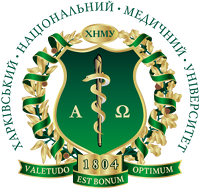Будь ласка, використовуйте цей ідентифікатор, щоб цитувати або посилатися на цей матеріал:
http://repo.knmu.edu.ua/handle/123456789/13006| Назва: | Adolescent’s sensorineural hearing loss. Drugs used in treatment |
| Автори: | Hryhorova, M. Sokol, A. Ananko, S. |
| Теми: | adolescent’s sensorineural hearing loss drugs used |
| Дата публікації: | 19-тра-2016 |
| Бібліографічний опис: | Hryhorova M. V. Adolescent’s sensorineural hearing loss. Drugs used in treatment / M. V. Hryhorova, A. A. Sokol, S. J. Ananko // Actual proplems of clinical and theoretical medicine : Abstact book of IX th International interdisciplinary scientific conference of young scientists and medical students (International Scientific Inderdisciplinary Congrence – ISIC), Kharkiv, 19–20 may 2016 / KhNMU.. – Kharkiv, 2016. – P. 21–22. |
| Короткий огляд (реферат): | Looking at the statistics of adolescent’s ENT diseases we marked, that there are some cases when subjective tinnitus appears. This condition is caused by sensorineural hearing impairment. We tried to find more effective treatments and drugs, which made the best dynamics of disease course. Sensorineural hearing loss is a group of diseases characterized by partial hearing loss and broken function of sound reproduction due to damage of relevant organs: the inner ear, auditory nerve or brain center, which is responsible for sound perception. This disease is very rare for children and it is often a complication of SARS or influenza. Also otitis media often leads to sensorineural hearing loss. This disease for children is characterized by noise and congestion in the ears, which is accompanied by partial hearing impairment. Drug-induced hearing loss therapy should be aimed to improve the state of the receptor structures; to normalize blood circulation and lymphocirculation in the inner ear and the brain; to normalize the tissue and cellular metabolism of the central nervous system. Recently in the treatment of sensorineural hearing loss medicine started to use the drug called "Vestibo" as it has very positive impact on children’s recovery. "Vestibo" is synthetic analogue of histamine. The main active ingredient - betahistine dihydrochloride. Betahistine affects the cochlear blood flow and central vestibular system. It possesses strong central effect as nuclei H3-receptor antagonist of the vestibular nerve, normalises neuronal transmission in polysynaptic neurons of the vestibular nuclei in the brainstem level. "Vestibo" indirectly affects the H3-receptors, increases the amount of serotonin in the brainstem, reduces the activity of the vestibular nuclei. It promotes the elimination of violations of the vestibular and cochlear system: reduces the frequency and intensity of dizziness, reduces noise in the ears, improves hearing in the case of its reduction. Drug stimulates the H1-receptor, so there is no sedative effect. Moreover, "Vestibo" has indirect effect on the arterioles and capillaries that are located in the inner ear, it helps to increase the vessel lumen, leading to an improvement of the blood flow. Under the influence of the drug also seen the improvement of cerebral blood flow in the carotid and vertebrobasilar systems. After oral dose betahistine is rapidly absorbed from the gastrointestinal tract. During the research of the drugs for treatment of children’s sensorineural hearing loss we can mark positive results in the usage of "Vestibo" drug (or its analogues): children’s auditory perception has improved and the noise in ears reduced greatly. |
| URI (Уніфікований ідентифікатор ресурсу): | https://repo.knmu.edu.ua/handle/123456789/13006 |
| Розташовується у зібраннях: | Наукові роботи молодих вчених. Кафедра фармакології та медичної рецептури |
Файли цього матеріалу:
| Файл | Опис | Розмір | Формат | |
|---|---|---|---|---|
| Isic 2016 Григорова М.В., Сокол А.А., Ананько С.Я.doc | 32 kB | Microsoft Word | Переглянути/відкрити |
Усі матеріали в архіві електронних ресурсів захищені авторським правом, всі права збережені.

